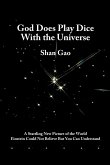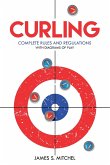When you insert a straight stick in water, you will surprisedly find that the stick appears bent. Yet, this is in fact an optical illusion resulting from the refraction of light. Nature always hides her secret with attractive veiling. This may also be true for the motion of objects. Although everything around us appears to move in a continuous and lawful way, it is in all probability that their motion is discontinuous and random in reality as the microscopic phenomena reveal. This book presents a clear exposition of the intriguing idea of random discontinuous motion and its implications for quantum theory and relativity. Once you realize that motion is actually discontinuous and random, you may finally understand the mysterious quantum world, where an electron can pass through two slits at the same time. I fully agree with your idea of discontinuous movement. ---- Antoine Suarez, Center for Quantum Philosophy, Zurich The idea of using discontinuous motion as a realist interpretation of quantum mechanics is original. If it can be made to work, it would add an interesting new ontology to our stock of quantum mechanical interpretations. ---- Reviewer of Foundations of Physics Its very existence is at any rate, an excellent illustration of the extent to which physical data force us to depart from commonsense ideas when we try to depict reality "as it really is". ---- Bernard d'Espagnat, University of Paris-Orsay
Hinweis: Dieser Artikel kann nur an eine deutsche Lieferadresse ausgeliefert werden.
Hinweis: Dieser Artikel kann nur an eine deutsche Lieferadresse ausgeliefert werden.








